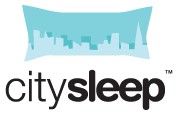The future of the hospitality industry is being driven by a complex set of converging technology forces that are making the industry re-think how it interacts with customers and manages the guest experience.
The hospitality industry will look very different in 2020 compared to how it is today.
The industry has been known as a slow integrator of new technologies and innovations into everyday hotel operations. This is especially the case with technologies that may have been successful in the home environment, but might not necessarily translate seamlessly into a hotel operation.
With the new technology available today, hotel companies are able to create new personalised products and services, improve the whole guest experience, streamline smart hotel operations and come up with new ways to innovative the hotel business model.
Below we have listed some of the technology trends and changes that are happening in the hospitality industry and how they are helping improve the guest experience:
Artificial intelligence (AI)
AI is an area of computer science that creates intelligent machines that work and react like humans.
From booking engines to chatbots to room allocations to answering customer questions, AI is gradually being deployed to improve optimisation and enhance the guest experience.
Natural language processing (NLP) is an emerging technology that uses voice recognition. It's a form of AI that focuses on analysing the human language to draw insights and context in what is being written or said.
When you're typing a text message on your smart phone, you'll see word suggestions based on what you type and what you're currently typing. That's natural language processing in action.
As NLP develops we can expect to see improved human to AI interaction in devices such as Google's Assistant and Amazon's Alexa.
Voice technology
Starting with Apple’s digital assistant Siri and fuelled by the accelerated development of voice technology through smart speakers such as the Google Assistant and Amazon Alexa – this is an area of voice technology that is starting to have an impact on hotels.
For hotel businesses, voice technology brings a world of possibilities, from enabling staff communications to enhancing the guest stay experience.
Also, there is a big opportunity for hotels to extend their reach through these new distribution channels. If a prospective guest uses a smart speaker to ask for help to find a hotel, or to organise a trip, hotels can benefit from these new booking channels.
Smart speaker products in hotels can be customised to include general hotel information, allow guests to request services like housekeeping or room service; and can be configured to control “smart” hotel room functions, like adjusting the lights, air conditioning, or controlling the TV and entertainments systems.
The impact of voice technology will continue to grow as the number of people purchasing voice-activated smart speakers increases.
Those that have bought smart speakers now consider the device to be an essential part of how they live, using them for all kinds of tasks at home, from playing music to controlling household smart devices.
Any technology that has a high rate of adoption by consumers will eventually get the attention of the hospitality industry, especially considering that we are used to using our voice to interface and interact with each other, it’s easy and natural for customers to adopt.
Voice or digital assistants that are integrated into the hotel operating environment should make security a concern though. Voice technology is pretty much open ended, customers and operators need to be educated on what information is being stored. Amazon for example captures recordings of guests and stores that data to improve their natural language processing.
Chatbots
The chatbot is piece of software, pre-programmed to behave and communicate with an audience as a human being would. The use of chatbots in the hotel industry is still evolving, but currently encompasses a wide range of services, from hotel bookings and customer service inquiries to general travel advice.
Very few websites that you visit these days, don’t involve some kind of interaction with a pop-up asking if you need help in a live chat format. In hospitality, this trend is especially strong, where 24/7 support is often required by customers outside of normal office hours.
Chatbots are able to respond to simple questions taking the burden away from customer service and reception staff and at the same time enhance the overall experience for guests.
Website visitors are happy to engage with chatbots because they get an immediate response, and, chatbots can collect a lot of customer data for hotel operators. They are also available 24/7 and are received in a more positive way than emails when providing updates or looking for guest stay feedback.
Virtual reality (VR)
Virtual reality has been a popular technology trend within the hospitality industry, able to place customers digitally in a virtual setting. This can be used from the early booking stages of the customer journey, right through to when the guest is in the hotel.
Many hotel operators are using 360-degree imaging technology on their websites to allow virtual reality users to experience hotel rooms and the local attractions before they book.
Augmented Reality (AR).
An AR app allows a customer to virtually see on their smart phone screens, the hotel room, provide useful information and present local points of interest. It is an immersive experience that can transform how hotels sell a stay experience.
New ways to pay
With the increase in the number of people with smart phones and the growth of cardless payments, there are emerging and alternative forms of payment, and new developments in integrated payment systems available for the hospitality industry.
Smart phone key access
Door locks are some of the oldest technologies that exist in the hotel industry today. But they are finally transitioning from being mechanical to interconnected and electronic. With some hotel companies already allowing guests to unlock their guest rooms using a smart phone.
Embrace and leverage technology to enhance the guest experience
Happybooking is first and foremost a property management system (PMS). That means they help you with the admin and automate tedious tasks freeing up time for you to focus on a positive customer experience.
On average Happybooking customers can get back up to 10 hours per week – think what you could do with that extra time!
Happybooking have always focused on creating a user-friendly booking system to help property owners improve their revenue performance.
Check out how easy the Happybooking system is, open up a free trial account
Our guest blogger is John Kennedy. John is a hospitality consultant, dedicated to helping increase profits through marketing, revenue management and efficient operations. www.kennedyandersson.com
Image source: www.pexels.com



